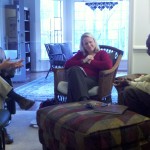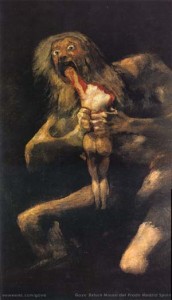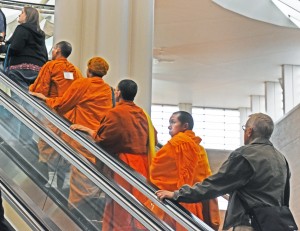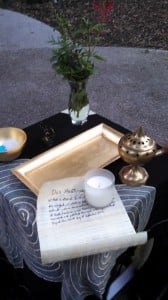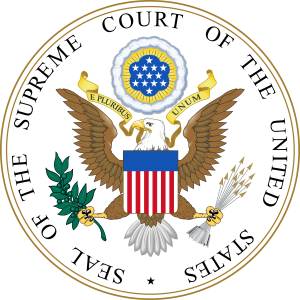 In the town of Greece, NY, sectarian prayer has been opening monthly municipal meetings since 1999. Members of that town sued it because those prayers were overwhelmingly Christian. On May 5th, the Supreme Court of the United States (SCOTUS) decided that case determining that sectarian prayer held prior to such meetings was not prohibited by the Constitution of the United States.
In the town of Greece, NY, sectarian prayer has been opening monthly municipal meetings since 1999. Members of that town sued it because those prayers were overwhelmingly Christian. On May 5th, the Supreme Court of the United States (SCOTUS) decided that case determining that sectarian prayer held prior to such meetings was not prohibited by the Constitution of the United States.
Before I continue, let me be clear: I am not a lawyer, constitutional or otherwise. But I do like lemonade, and I think that SCOTUS just handed us a bunch of lemons.
This Ruling Sucks
There’s really no other way to slice it. I think it’s even pretty poorly decided if you share the majority faith considering the decision indicates that invocations in the name of Jesus are merely traditional elements meant to “solemnize the occasion.” This minimizes these invocations putting them on the same level of, for example, the Pledge of Allegiance; the cries of “Oye! Oye!” or the action of standing that precede a judge’s entrance into a courtroom; or, as James Carroll put it in the Boston Globe: “What — invoking the holy name of Jesus makes up for, say, town officials’ habit of showing up in gym clothes?”
Regardless, the ruling is likely here to stay. Hecate Demeter, who is a lawyer, offered her initial thoughts on the ruling this past weekend at Witches & Pagans. In her article, I think she brought up a number of good points, one of which is the simple fact that this decision is unlikely to be challenged legislatively. Who wants to be described as the person who sponsored “the bill against prayer?”
Thus, it seems that the only way for those of us who want to see this ruling reversed, you know — because it sucks, is going to be to play along for the moment.
The Next Step
In the article linked above, Hecate offered this conclusion: “the only logical thing I can see to do in response is for Pagans and other members of minority and disfavored religions to begin showing up, volunteering to offer the public prayers, and making a record of the times that they are turned down.”
While I agree with her, this sucks, too. I don’t want prayer before municipal meetings. In offering her dissent to the Court’s ruling, Justice Elena Kagan discussed a variety of situations in which a person’s lack of participation in the religious invocation might bias government representatives against that person. In other words, my hopes to construct a backyard shed shouldn’t rest upon my willingness to pray. In a perfect world, representatives wouldn’t use their religion or mine (or the lack of anyone’s religion) in determining the fitness of my plans for shed-construction.
But, this is far from a perfect world.
Following the SCOTUS decision, the American Humanist Association moved to quickly provide the means for interested humanists to offer their own invocations prior to town meetings. After all, the SCOTUS decision specifically indicated that a town must maintain a policy of nondiscrimination with respect to sectarian opening prayers. The goal of this online application, according to their statement, is to provide “sample secular invocations and an interactive map to find a humanist who can deliver an invocation in one’s local area.” In short: they want to do the first and second items that Hecate described and I quoted above.
I want to do the same, and more, for Pagans.
A Policy of Nondiscrimination
The syllabus in the SCOTUS decision indicates, as mentioned above, that a policy of nondiscrimination needs to be maintained by the town. Since we’re not likely to see a legislative discussion of this ruling, that leaves the judiciary. Which means we need data and, at the moment, we don’t have it. By creating a system that would allow Pagans to offer their services to their municipalities and to record, as Hecate suggests, their experiences after doing so, we might be able to show that a pattern of discrimination does exist, If so, armed with that data, we could return to the courts.
Americans United for the Separation of Church and State is doing just that. They’re calling it Operation Inclusion. The AU maintains that “towns cannot discriminate on the basis of religion; town leaders cannot lead others in prayers or integrate worship into the legislative process; and invocations cannot proselytize or denigrate other belief systems.” If we can amass data that shows these criteria are not met, we have a way forward with respect to challenging the SCOTUS ruling.
I’ve contacted the AU to see if efforts within religious communities can be linked to Operation Inclusion, but I have not yet received a response. My next step is to contact the local Massachusetts chapter of AU; I will keep you all in the loop with respect to my efforts here.
An Interfaith Opportunity
So, that was a lot of lemons. But, there is one thing from which we can all benefit as a result of this ruling. If nothing else, it creates the opportunity for increased interfaith involvement prior to town meetings. Population statistics indicate that the majority of municipal sectarian invocations will remain Christian. This is especially true since the syllabus to the SCOTUS ruling also indicates that a town need not not search beyond its borders for “non-Christian prayer givers in an effort to achieve religious balancing.”
But, for those towns which have non-Christian members, it’s not only fair to say that the town should involvethem, but that they must. I suppose an argument could be made that without an appropriate religious authority within the town borders it may be hard to do so. But, the ruling indicated the town doesn’t have to find such authorities; it didn’t say that the a religious congregation couldn’t invite their authority to town!
From this point of view, the decision is sort of a win-win. We have the chance to share our practices with others and to engage our neighbors in learning more not only about Paganism but also about other minority faiths and about the various forms of both atheism and non-theism. And, if we find a pattern of discrimination, we also have plans in place about how to deal with it.
A Holistic Response
There’s one last thing to consider: some municipalities already have policies enforcing non-sectarian prayer (though at least one of these is now in question) or policies against prayer entirely.
These municipalities should be lauded for their stance. In addition to resources for sectarian prayer to be used in areas of the country that allow for them, I propose that we also undertake a second, complementary endeavor to celebrate, promote, and thank our towns by offering resources (e.g. form letters) that we could print, personalize, and send to our local representation. This may go some distance toward helping to shore up the wall of separation between church and state that seems to have crumbled a bit in recent times.

